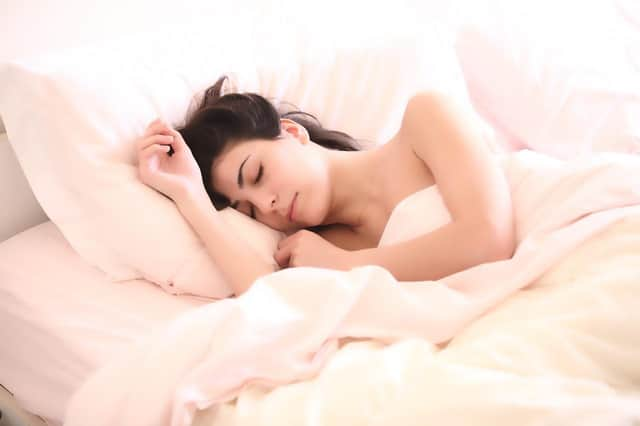FEELING GREAT: Spending less time asleep will soon create a healthy habit


A better quality of sleep is essential for us all, but most people spend too much time in bed. Spending more than seven to eight hours in bed is unhealthy, and a lack of knowledge on this is why most people lose what I call the “bedroom battle”.
But you are coming through the worst of it - colder months, when you might find it more difficult to get up and about as early as you might like.
Advertisement
Hide AdAdvertisement
Hide AdStart with a basic: the alarm clock isn’t helping. The problem with any alarm is that it’s designed to frighten you into action. Think car or burglar alarm, they just jolt you.
An alarm clock isn’t the best way to begin your day. Natural light lamps or soothing music are better options to wake up to. And what about the temptation to think you need that extra time in bed for fear that you’ll be left feeling tired all day? It’s a myth – more sleep doesn’t mean more energy.
Most people lose the battle of the bed because of a simple formula: lack of vitamin D (sunlight) + extra time on the couch = feeling lethargic. And that leads to the mistake of thinking the answer to your energy problem more sleep.
Rarely, unless there’s an underlying medical condition, extreme sleep deprivation, or you’re a new mum, is this true. Most people need less sleep. And more sleep hoping to feel less tired – well, that’s a fallacy too.
Advertisement
Hide AdAdvertisement
Hide AdWhen it comes to sleep, less is more. The average adult needs just six to seven hours each night. If your current level is around 10 hours, switching to six to seven will leave you groggy. Stick at it for about 30 days, it becomes the norm and a healthy habit is formed.
The golden hours happen between five to eight am each morning. But how many people are still in bed? Rising at that time each day could see you exercise more, to plan and enjoy your day or even clean the house in peace.
And if you do manage to make this a healthy habit, here’s what waits for you: by climbing out of bed just one hour earlier each morning you will find spare time equivalent to one entire working week in your life, every month.